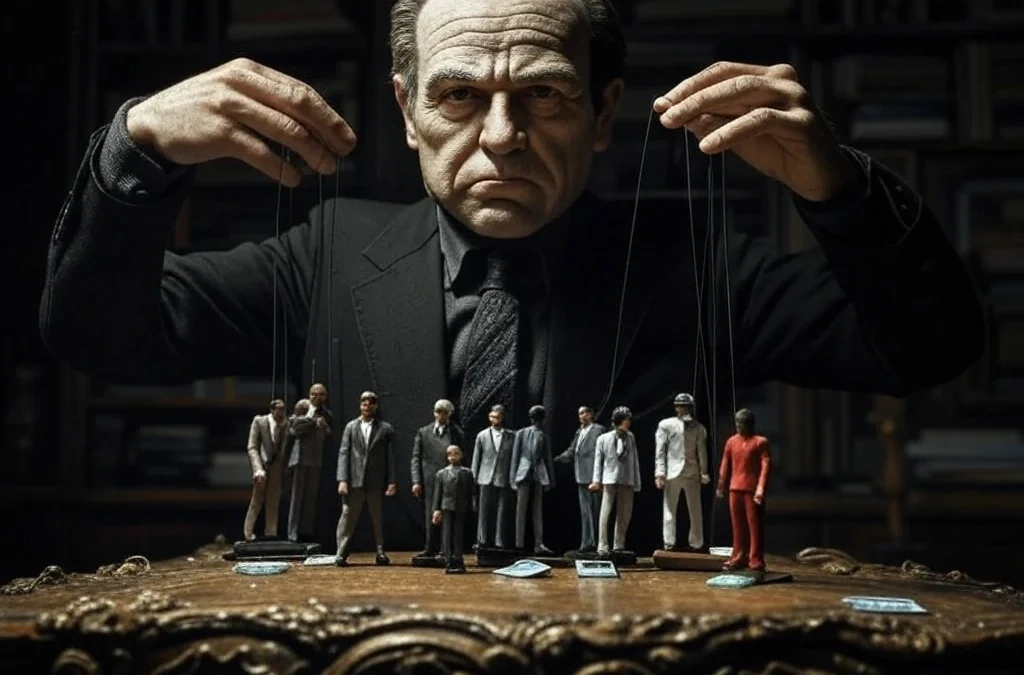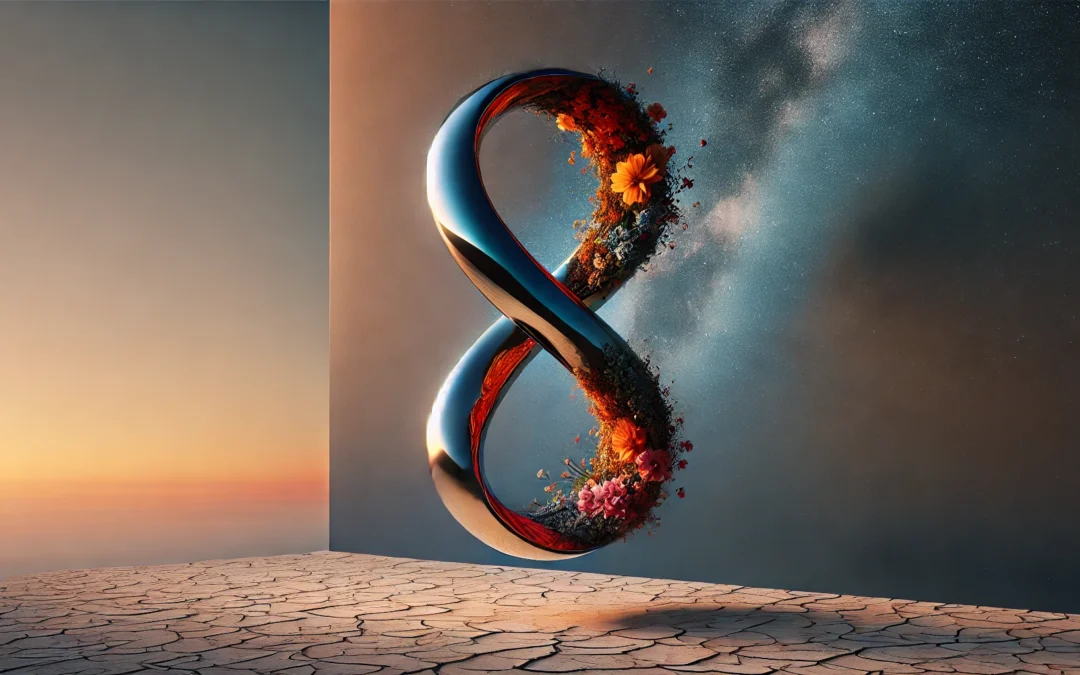Have you ever found yourself in a situation where the more you try to save time, the more time you actually waste? That’s the paradox of efficiency at play. Paradoxes are all around us, and they often pop up in everyday life, leaving us scratching our heads. They are statements or situations that seem to contradict themselves but often reveal a deeper truth or insight. From the classic “This statement is false” to the puzzling notion that less is sometimes more, paradoxes challenge the way we think and understand the world.
In this article, we’ll explore 40 intriguing examples of paradoxes that range from the philosophical to the practical. Paradoxes can be found in language, logic, and even in our daily routines. They can make us question what we know and invite us to see things from a new perspective. By examining these paradoxes, we can gain a better understanding of the complexities of life and maybe even find some humor in the contradictions we encounter. So, let’s take a closer look at these fascinating contradictions that keep our minds engaged and our curiosity alive.
Understanding the Concept of Paradox
A paradox is a statement, proposition, or situation that contradicts itself or defies intuition, yet might hold a grain of truth upon closer examination. Paradoxes often challenge our conventional understanding and provoke thought by presenting seemingly impossible or contradictory elements that coexist. They are prevalent in various fields such as philosophy, literature, mathematics, and logic, offering a unique way to explore complex ideas and stimulate critical thinking.
In philosophy and literature, paradoxes are used to illustrate complex or abstract ideas, often highlighting the limitations of human understanding or the complexity of the world. For example, the famous “This statement is false” is a paradox because if the statement is true, then it must be false, but if it is false, then it must be true.
In mathematics and logic, paradoxes often arise from self-reference, circular definitions, or infinite regress. They can lead to new insights and advancements in these fields by challenging existing theories and prompting the development of new frameworks to resolve the contradictions.
Paradoxes can be classified into several types, including:
1. Veridical Paradoxes: These are paradoxes that seem absurd but are actually true. An example is the “Monty Hall Problem,” a probability puzzle that defies common intuition.
2. Falsidical Paradoxes: These paradoxes contain a fallacy or error in reasoning that leads to a false conclusion, despite appearing logical at first glance.
3. Antinomy: This type of paradox involves a contradiction derived from premises that seem equally reasonable, often revealing a fundamental conflict in the underlying assumptions.
Engaging with paradoxes can be intellectually rewarding, as they inspire deeper exploration of ideas and cultivate an appreciation for the intricate and multifaceted nature of reality. By grappling with these thought-provoking contradictions, we can sharpen our critical thinking skills and reassess our own assumptions, ultimately gaining fresh perspectives on the world.
The Best Examples of Paradox
Paradoxes are fascinating because they challenge the way we think and often reveal unexpected truths about the world. Below, you’ll find 40 of the best examples of paradoxes, each showcasing how seemingly contradictory ideas can coexist in ways that intrigue and inspire.
1. The Birthday Paradox
In a group of just 23 people, there’s a 50% chance that two people share the same birthday. While it feels counterintuitive, this paradox is explained by probability theory, showing how quickly overlapping birthdays become likely in a small group. This paradox is known as the Birthday Paradox.
2. The Barber Paradox
In a village, there is a barber who shaves everyone who does not shave themselves. The paradox arises when you ask: Does the barber shave himself? If he does, then he should not shave himself, as he only shaves those who do not shave themselves. Conversely, if he does not shave himself, then he must shave himself, since he shaves everyone who does not shave themselves. This creates a logical contradiction.
3. The Liar Paradox
Consider the statement: “This sentence is false.” If the statement is true, then it must be false as it claims. However, if it is false, then it must be true, because it accurately states that it is false. This paradox challenges our understanding of truth and falsehood, creating a loop that cannot be resolved.
4. The Grandfather Paradox
This is a time travel paradox. Imagine you travel back in time and accidentally prevent your grandfather from meeting your grandmother. If they never meet, you would never be born, and thus could not have traveled back in time to prevent their meeting. This paradox questions the consistency of events and the nature of time.
5. The Ship of Theseus
This paradox involves a ship that has all of its parts replaced over time. The question is whether it remains the same ship. If every part is replaced, is it still the Ship of Theseus, or is it a different ship? This paradox explores identity and change, challenging what it means to be the “same” over time.
6. The Russell’s Paradox
In set theory, consider the set of all sets that do not contain themselves. Does this set contain itself? If it does, then it should not contain itself, according to its definition. If it does not, then by definition, it must contain itself. This paradox shows limitations in our understanding of sets and collections.
7. The Paradox of Thrift
In economics, the paradox of thrift suggests that if everyone saves more during a recession, overall demand will fall, leading to lower total savings in the economy. While saving is beneficial for an individual, if everyone does it simultaneously, it can harm the economy, creating a paradox between individual and collective good.
8. The Epimenides Paradox
Attributed to the Cretan philosopher Epimenides, who said, “All Cretans are liars.” If he is telling the truth, then as a Cretan, he must be lying, which means he is not telling the truth. But if he is lying, then Cretans are not liars, and he is telling the truth. This paradox highlights the complexities in self-referential statements.
9. The Catch-22 Paradox
This paradox comes from Joseph Heller’s novel “Catch-22,” where pilots can be declared insane if they willingly continue to fly dangerous missions, but if they request to be grounded for insanity, their request shows sanity, disqualifying them from being grounded. This paradox illustrates a no-win situation where the rules prevent escape.
10. The Sorites Paradox
The Sorites Paradox involves a heap of sand, where removing a single grain still leaves a heap. If you continue removing grains, at what point does it stop being a heap? This paradox challenges how we define vague concepts and when quantitative changes result in qualitative differences.
11. The Bootstrap Paradox
Another time travel paradox, the bootstrap paradox involves an object or piece of information sent back in time, creating a loop with no origin. For instance, a scientist receives a blueprint for a time machine from their future self, builds it, and then sends the blueprint back to their past self. The paradox lies in the lack of an original source for the blueprint.
12. The Unexpected Hanging Paradox
A judge tells a condemned prisoner that he will be hanged at noon on one weekday in the following week, but the execution will be a surprise to the prisoner. The prisoner deduces that he will never be hanged because if he hasn’t been hanged by Thursday, then the execution must be on Friday, which would not be a surprise. By similar reasoning, he rules out each day, concluding he will not be hanged. However, the hanging takes place on an unexpected day, creating a paradox of prediction and surprise.
13. The Raven Paradox
In logic, the statement “All ravens are black” is equivalent to “All non-black things are not ravens.” Observing a black raven supports the hypothesis, but according to the paradox, so does observing a green apple. Each non-black non-raven observation seemingly confirms the original statement, raising questions about what constitutes evidence and logical equivalence.
14. The Voting Paradox
In a voting scenario with three or more options, individual preferences can be cyclical, leading to a situation where there is no clear winner. For example, if voters prefer candidate A over B, B over C, and C over A, the collective preference becomes inconsistent. This paradox shows the complexities of aggregating individual preferences into a group decision.
15. The Dichotomy Paradox
Proposed by Zeno, this paradox argues that before reaching a destination, one must reach the halfway point, and before that, the quarter-way point, and so on infinitely. Thus, motion seems impossible because it requires completing an infinite number of tasks. This paradox challenges our understanding of motion and infinity.
16. The Newcomb’s Paradox
In this thought experiment, a predictor offers you two boxes: one transparent containing $1,000 and one opaque containing either $0 or $1,000,000. You can take both boxes or just the opaque one. The predictor has already made a prediction about your choice. The paradox arises because rational decision-making suggests different strategies depending on how you assess the predictor’s accuracy.
17. The Paradox of the Ravens
A closer look at the paradox involving evidence and confirmation, it questions how observing non-black objects can confirm that “all ravens are black.” If seeing a black raven supports the hypothesis, does seeing a red apple do the same? This paradox challenges our understanding of inductive reasoning and hypothesis confirmation.
18. The Paradox of the Tortoise and Achilles
Another of Zeno’s paradoxes, it states that Achilles will never catch up to the tortoise ahead of him. By the time Achilles reaches the tortoise’s starting point, the tortoise has moved further. This process repeats infinitely, suggesting that motion is an illusion, defying common sense.
19. The Monty Hall Paradox
Based on a game show scenario, a contestant picks one of three doors. Behind one door is a car; behind the others, goats. The host, who knows what’s behind the doors, opens a door with a goat. The contestant is then asked if they want to switch their choice. Intuition suggests it doesn’t matter, but probability shows switching doubles the chance of winning. This paradox illustrates the gap between intuition and statistical reality.
20. The Paradox of the Unexpected Exam
Similar to the unexpected hanging, a teacher announces a surprise exam next week. The students logically deduce the exam cannot be a surprise, yet it occurs unexpectedly. This paradox plays on the tension between logical deduction and real-world unpredictability.
21. The Paradox of Free Will
This philosophical paradox questions how free will can exist in a world governed by deterministic laws of physics. If every action is the result of preceding causes, can individuals truly have free will? This paradox challenges our understanding of autonomy and determinism, sparking debates in philosophy and science.
22. The Lottery Paradox
Imagine a lottery with millions of tickets. You know that only one ticket will win. Rationally, you might think any single ticket is unlikely to win. However, if you claim every ticket is a loser, this contradicts the fact that one must win. This paradox highlights the conflict between individual probabilities and collective certainty.
23. The Friendship Paradox
You might feel your friends have more friends than you do. Statistically, this is often true because people with many friends are more likely to be your friend. This paradox shows how our perception of relationships can be skewed by social connections.
24. The Arrow Paradox
In one of Zeno’s paradoxes, an arrow in flight appears motionless at every instant of time. If time consists of separate instants, the arrow must be stationary at each one, implying it cannot move. This paradox questions how continuous motion is possible.
25. The Omnipotence Paradox
Can an all-powerful being create a rock so heavy that even they cannot lift it? If they can, then there’s something they cannot do (lift the rock). If they cannot, there’s also something they cannot do (create the rock). This paradox explores the limits of power and logical contradictions.
26. The Paradox of Choice
In everyday life, having more choices might seem better. Yet studies show too many options can lead to anxiety and decision paralysis. This paradox reveals how more freedom to choose can sometimes make us less happy.
27. The Paradox of Tolerance
If a society is tolerant of everything, it must also tolerate intolerance. But if intolerance is tolerated, it can destroy tolerance itself. This paradox highlights the delicate balance between freedom and protecting values in a community.
28. The Sorites Paradox (Another Angle)
If a person has no money, they are considered poor. If you give them one dollar, they are still poor. Adding one dollar at a time doesn’t seem to change this, but at some point, they are no longer poor. This paradox questions when a gradual change becomes significant.
29. The Twin Paradox
In Einstein’s theory of relativity, one twin travels into space at near-light speed while the other stays on Earth. Upon return, the traveling twin is younger due to time dilation. This paradox challenges our understanding of time and simultaneity.
30. The Hedonistic Paradox
The harder you try to achieve happiness, the less likely you are to find it. Often, joy comes from focusing on meaningful actions rather than directly seeking it. This paradox reflects the complexities of human emotions and fulfillment.
31. The Paradox of Patience
Sometimes, the less you rush, the faster you achieve your goal. For instance, in learning a skill, pushing too hard can lead to burnout, while steady, patient practice often yields better results. This paradox highlights the power of pacing in achieving success.
32. The Paradox of Plenty
Having access to abundant resources can sometimes lead to poorer outcomes. For instance, countries rich in natural resources often struggle with economic instability due to overdependence on those resources, a phenomenon known as the “resource curse.”
33. The Pinocchio Paradox
If Pinocchio says, “My nose will grow now,” what happens? If his nose grows, the statement is true, but it shouldn’t grow unless he is lying. If it doesn’t grow, then his statement is false, but his nose should grow because he lied. This paradox explores self-referential contradictions.
34. The Paradox of Success
The more successful you are, the harder it becomes to maintain that success. For example, a popular author may face increasing pressure to write another bestseller, which can stifle creativity. This paradox illustrates the challenges that success brings.
35. The Paradox of Freedom
Absolute freedom can lead to its own destruction. If everyone is free to do whatever they want, chaos ensues, and systems are created to maintain order, limiting freedom. This paradox highlights the tension between individual liberty and societal structure.
36. The Abilene Paradox
A group of people may collectively decide on something that none of them individually want. For example, a family might agree to go on a trip because they think everyone else wants to go, only to realize later that no one actually did. This paradox highlights communication failures in group decisions.
37. The Time Traveler’s Paradox
Imagine you travel back in time and accidentally stop your own parents from meeting. If they never meet, you’re never born, and if you’re not born, you can’t travel back in time to stop them. This paradox raises questions about causality and time travel.
38. The Paradox of Learning
The more you learn, the more you realize how much you don’t know. As knowledge expands, so does the awareness of the gaps in your understanding. This paradox encourages humility and lifelong curiosity.
39. The Paradox of Effort
Sometimes, trying too hard can make success less likely. For example, overthinking during a sports game can interfere with natural instincts and performance. This paradox shows how effort and outcomes are not always directly correlated.
40. The Elevator Paradox
If you live in a tall building, you might feel the elevator is often going in the wrong direction when it arrives. This paradox occurs because elevators serve more people traveling to higher floors, so they are more likely to come from above than below. It’s a surprising example of how perceived patterns can differ from statistical reality.
Read also: 30 Best Moral Dilemma Examples
Understanding Contradictory Statements
Paradoxes often involve statements that contradict themselves, yet they reveal deeper truths. This can be fascinating because it challenges our conventional way of thinking. Consider the statement, “I always lie.” If this statement is true, then the speaker must be lying, which means the statement is false. But if it’s false, then the speaker is telling the truth, which means they are lying. This seemingly simple contradiction forces us to think about the nature of truth and deception.
Contradictory statements are more than just linguistic puzzles; they can also reflect real-world situations. In psychology, cognitive dissonance occurs when a person holds two conflicting beliefs or attitudes, leading to discomfort and a need to resolve the inconsistency. For example, someone who values health but smokes may experience dissonance, prompting them to change their behavior or rationalize it.
In literature, authors often use contradictory statements to add complexity to characters or plots. A character who says one thing but does another can create tension and intrigue, keeping readers engaged. These contradictions make characters more relatable and human, as people often act against their stated beliefs in real life.
Understanding these contradictions helps us appreciate the nuances of communication and behavior. It reminds us that truth is not always straightforward and that exploring these contradictions can lead to greater insight and understanding.
The Concept of Paradox in Philosophy
A paradox is a statement or situation that contradicts itself or defies intuition. In philosophy, paradoxes are essential tools for challenging our understanding of truth, logic, and reasoning. Philosophers use paradoxes to explore complex ideas and to test the boundaries of what we consider possible. One of the most famous philosophical paradoxes is the “Liar Paradox,” which is the statement “This sentence is false.” If the sentence is true, then it must be false, as it claims. However, if it is false, then it must be true. This creates a logical inconsistency that forces us to reconsider our assumptions about truth and language. Philosophical paradoxes often reveal the limitations of our logical systems and encourage deeper inquiry into how we perceive reality. By examining paradoxes, philosophers can uncover hidden assumptions and stimulate debate on fundamental issues. Understanding paradoxes in philosophy can be both challenging and rewarding, offering insights into the nature of thought and the complexities of human reasoning.
Paradoxes in Literature and Storytelling
Paradoxes have long fascinated writers and readers alike. In literature, they serve as powerful tools to engage the audience by challenging their perceptions. A paradox can add depth to a story, making it more intriguing and thought-provoking. For instance, consider the famous paradox in George Orwell’s “Animal Farm”: “All animals are equal, but some animals are more equal than others.” This statement encapsulates the absurdity and contradictions found in totalitarian regimes. It forces readers to think critically about equality and power.
Paradoxes also appear in character development. Characters with contradictory traits are often more complex and relatable. Take Shakespeare’s Hamlet, who is both indecisive and driven by a need for revenge. This internal conflict makes him a timeless character. Readers find themselves pondering the human condition through these contradictions. They reflect on how real people often have conflicting desires and motivations. Paradoxes in literature mirror the complexity of life itself, making stories richer and more meaningful.
Paradoxes in Psychology and Human Behavior
Paradoxes are not just abstract concepts; they are integral to understanding human behavior. In psychology, they highlight the complexities of the human mind. One well-known example is the paradox of choice. It suggests that having too many options can lead to anxiety and dissatisfaction. People often believe more choices equal more freedom. But in reality, it can overwhelm them, leading to decision fatigue. This paradox is particularly relevant in consumer behavior and marketing.
Another psychological paradox is the empathy paradox. It describes how people can become less empathetic when exposed to too much suffering. For instance, constant news about global crises can lead to compassion fatigue. People may feel helpless and detached instead of motivated to help. This paradox reveals the limits of human empathy and the need for balance. Understanding these paradoxes can help mental health professionals provide better care. It can also help individuals navigate their own emotional landscapes more effectively.
Read also: 30 Reset Examples & What It Means
The Most Popular on BitGlint

40 Social Dilemma Examples in the World & Real Life
Social dilemmas are everywhere. They shape the choices we make at work, in our communities, and even on a global...

30 Favor Examples & Definition
Doing a favor means helping someone without expecting anything in return. It’s an act of kindness that can strengthen...

30 Naivety Examples & Definition
Naivety is something most people experience at some point in their lives. It often starts in childhood, but for some,...

20 Chronology Examples & Meaning
Chronology is something we use more than we realize. It shows up in conversations, in how we remember the past, and in...

30 Wishful Thinking Examples & Meaning
Wishful thinking is something we all do at some point. You hope things will turn out fine—even if there’s no real...

20 Examples of Gravity & What Gravity Really Is
Gravity is one of the most important forces in the universe, but many people don’t fully understand what it really is...

20 Examples of Secondary Consumers in the Food Chain
Secondary consumers are animals that eat other animals—usually herbivores that feed on plants. They’re an important...
Get Inspired with BitGlint
The Latest
30 Flow State Examples & Definition
Most people have felt it at some point — that rare moment when everything just clicks. You're working, moving, or thinking, and suddenly it's like the rest of the world fades out. You're focused, clear, and everything you're doing feels smooth and natural. That’s...

30 Cynicism Examples in Everyday Life & Definition
Cynicism is something most people have seen, heard, or even felt - but few stop to really think about what it means. It shows up in jokes, in conversations, and in quiet thoughts we don’t always say out loud. Some people wear it like armor. Others see it as honesty....
50 Examples of Square Things
Square things are part of everyday life, even if we don’t always think about them. From objects we use at home to tools, packaging, and design elements we see out in the world, the square shape is everywhere. It’s simple, balanced, and practical — which is exactly why...
30 Best Moral Dilemma Examples
Have you ever found yourself in a situation where you were faced with a tough decision, one that seemed to test your values and morals to their very core? Moral dilemmas are complex situations that present individuals with a choice between two or more options, each of...

